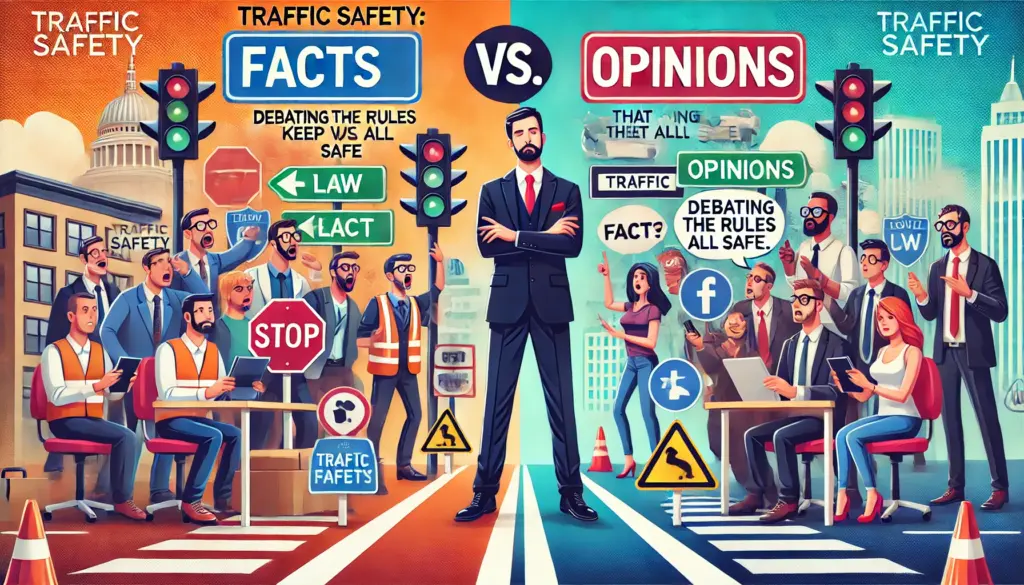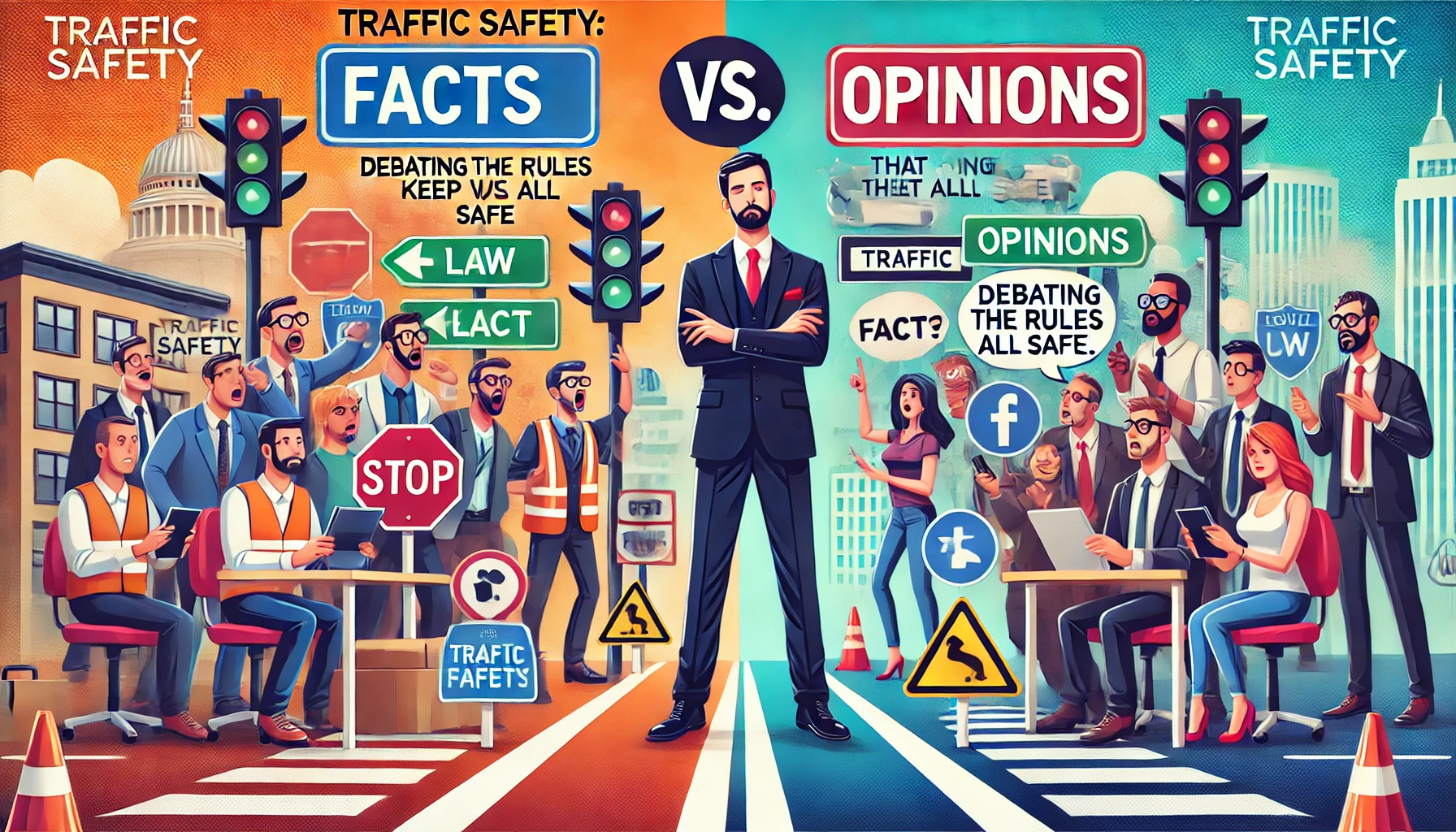
When it comes to traffic safety, laws are often rooted in a mix of common sense, logic, and a deep understanding of human behavior. But explaining those laws—or defending them—can be a fascinating exercise in patience, especially when you’re engaging with people who are eager to argue their case, often without reading the law themselves.
As someone who’s been on both sides of the badge, I’ve come to realize that the passion people bring to these debates can range from incredibly rewarding to downright exhausting.
The Thrill of a Civilized Debate
Every so often, I have an interaction that reminds me why I love what I do. Recently, a viewer challenged my assertion that lane splitting isn’t legal anywhere in Canada. They argued that it was legal in British Columbia and, to their credit, offered to back up their claim with evidence.
What followed was a refreshing exchange of ideas. They provided a link to their province’s traffic safety act and a case they believed supported their claim. Naturally, I was intrigued.
The case they provided involved a cyclist struck in the curb lane while passing parked cars. Initially, the cyclist was found at fault. However, the appeal overturned that decision, ruling that the cyclist was lawfully using the curb lane and the driver, who changed lanes into the cyclist, was at fault.
It was an interesting case and a great attempt to back their argument, but it didn’t support their claim. The key difference was that the vehicles being passed were parked, not actively moving on the roadway—a critical distinction in the legal principles governing stationary versus moving objects.
Even though their argument didn’t hold up, I appreciated the thoughtful approach and the chance to dive into the legal analysis. These interactions remind me why I enjoy discussing traffic laws: they’re opportunities to educate, explore perspectives, and, occasionally, have my own assumptions challenged.
When Arguments Go Off the Rails
Of course, not all debates are as constructive. For every thoughtful discussion, there are countless others where emotion trumps logic.
Take window tinting, for example. Some people insist their windows, which block 95% of light, actually improve their visibility while driving. Never mind that this claim flies in the face of basic optics and how the human eye works—they double down, citing personal anecdotes instead of scientific evidence.
Then there’s the helmet debate. A few years ago, as a police officer, I suggested that cyclists should wear helmets, a statement I still stand by today. The backlash was intense. Advocacy groups like Cycle Toronto argued that emphasizing helmet use distracts from the need for better cycling infrastructure and places undue responsibility on cyclists. In their open letter, they even alleged that I suggested helmets reduce collisions—a claim so absurd it barely warrants a response.
Their argument centered on systemic improvements, like better road design and driver behavior, which are undoubtedly important. But that doesn’t negate the fact that a helmet can be the difference between life and death in a collision. Helmets don’t prevent accidents, but they do protect your brain when accidents happen—a point I will continue to advocate for, regardless of how unpopular it might be with certain groups.
Some extremists even argue that children shouldn’t have to wear helmets, which baffles me. Children are among the most vulnerable road users, and helmets are a simple, effective way to reduce the risk of serious injury. While I respect differing opinions, some arguments seem to prioritize ideology over common sense.
Safety Isn’t a Revenue Generator
One of the most persistent accusations I encounter is that traffic laws exist purely to generate revenue. This notion is not only incorrect but also wildly misinformed.
Enforcing traffic laws is not cheap. In fact, it’s extremely expensive. Consider the resources involved: officers, patrol vehicles, support staff to process tickets, and court staff to handle challenges from those who refuse to take responsibility for their actions. The cost of enforcement far outweighs the revenue generated by tickets.
Every ticket issued kicks off an administrative process requiring staff to input, track, and manage each citation. If a violator decides to challenge their ticket in court, it involves even more resources—court staff, legal professionals, and the officer who issued the ticket, who must appear in court instead of patrolling the streets.
If traffic enforcement were about making money, it would be a terrible business model. In 2018, for example, the City of Toronto was owed over $577 million in unpaid fines. That’s half a billion dollars in revenue sitting uncollected, proving that the system isn’t exactly raking in cash. (
)
The reality is that enforcement costs far more than it generates. Traffic laws exist to save lives, not to balance budgets. Enforcement is an investment in public safety, not a revenue stream.
When people get hurt—often as a result of ignoring basic traffic laws—the ripple effects are immense. It’s not just the individuals involved who suffer; their families, communities, and even the healthcare system bear the burden. Traffic enforcement isn’t about punishment; it’s about prevention.
If You Could Just Follow the Rules
As much as I appreciate—and sometimes even enjoy—the debates, there’s a simple truth that often gets overlooked: you could save so much time by simply following the rules and accepting that they exist to keep everyone safe. If an expert answers your question, you could—like the vast majority of people—just say thank you.
Of course, I recognize that not everyone will. And maybe that’s a good thing. If it weren’t for the arguments, I’d probably have far fewer viral videos. Their popularity is no doubt fueled by people sitting back, eating popcorn, and reading through the comment sections as the debates unfold.
Still, there’s something to be said for taking a moment to trust that the rules aren’t there to inconvenience you. They’re there to protect you—and everyone else on the road.
A Final Thought
Whether it’s a debate about lane splitting, window tinting, or helmets, I won’t shy away from discussing the law or advocating for safety. Driving—or even using our shared roads—is a privilege, not a right.
If you want to challenge me, bring your facts, your logic, and your curiosity. I’ll bring mine, and together, we’ll figure it out—hopefully with some fun and mutual respect along the way. Sometimes, the debate itself is where the real value lies.



